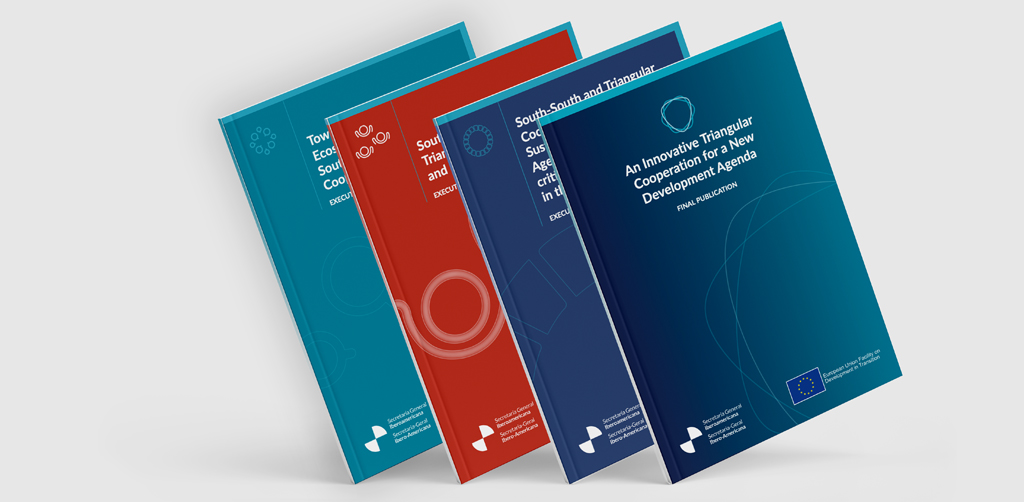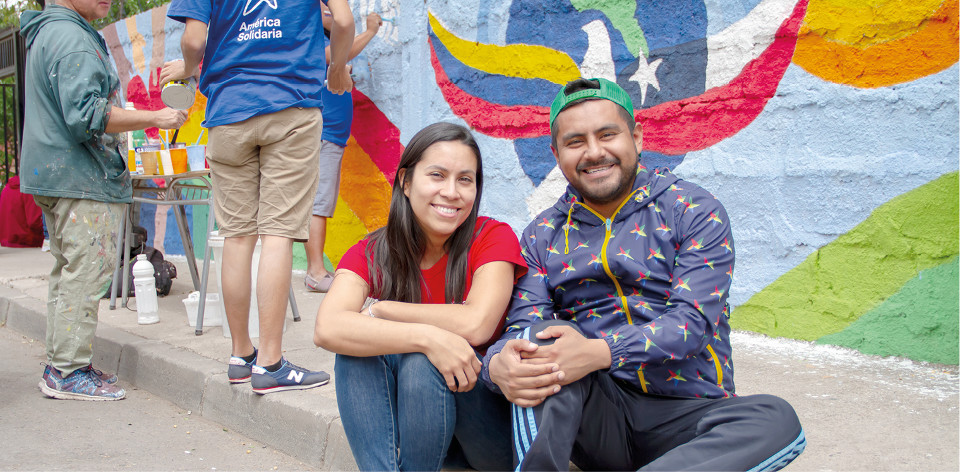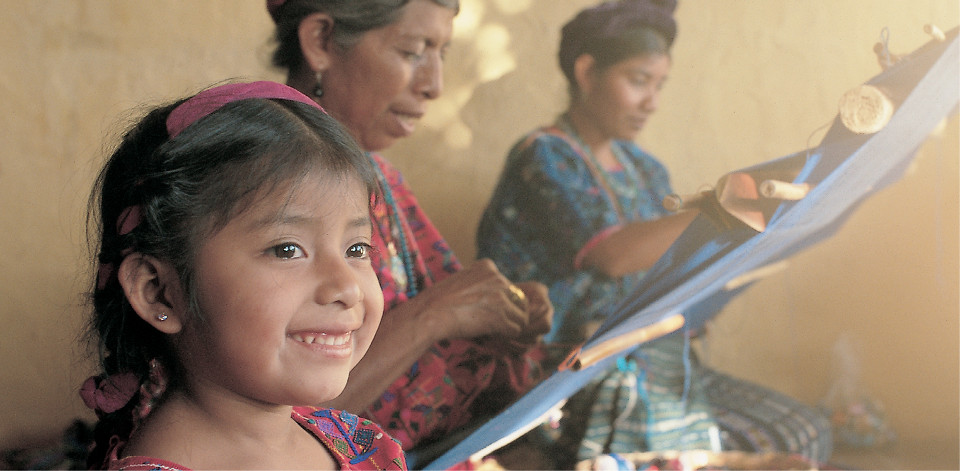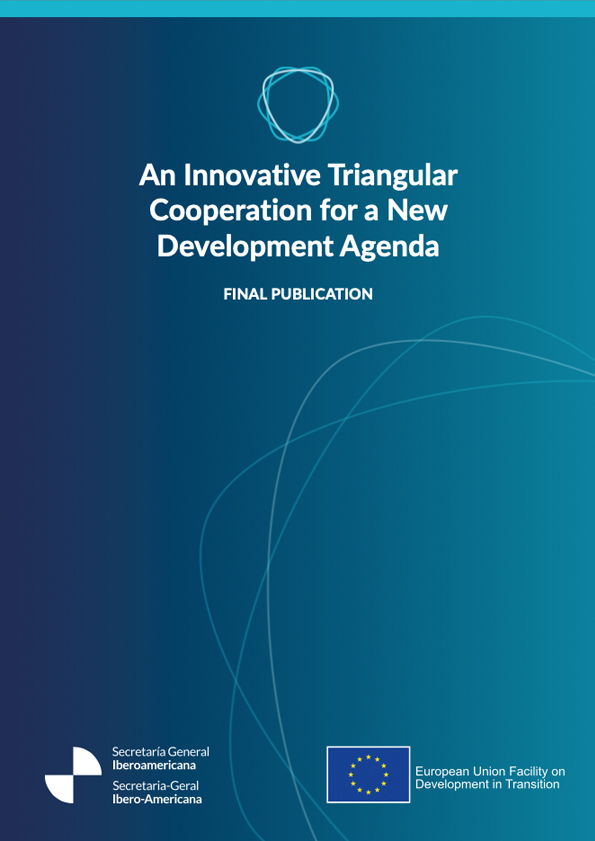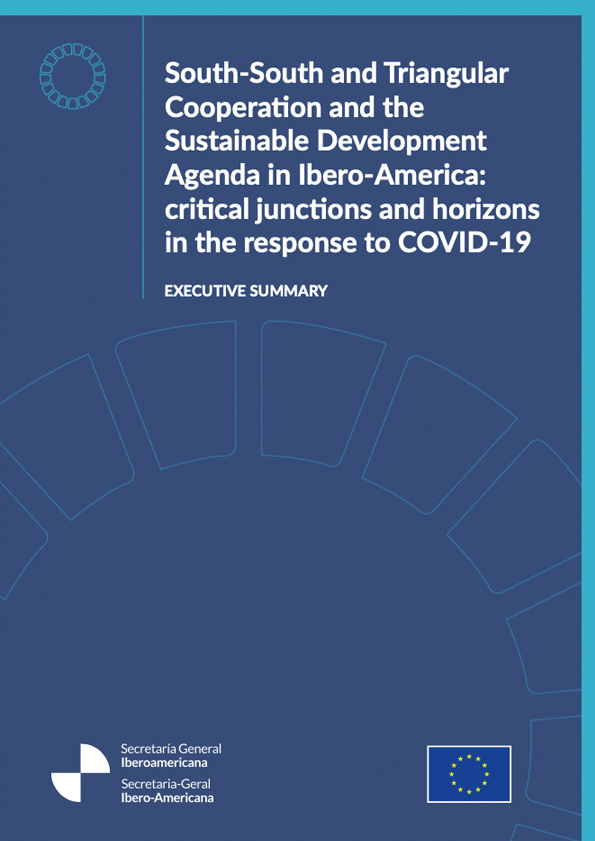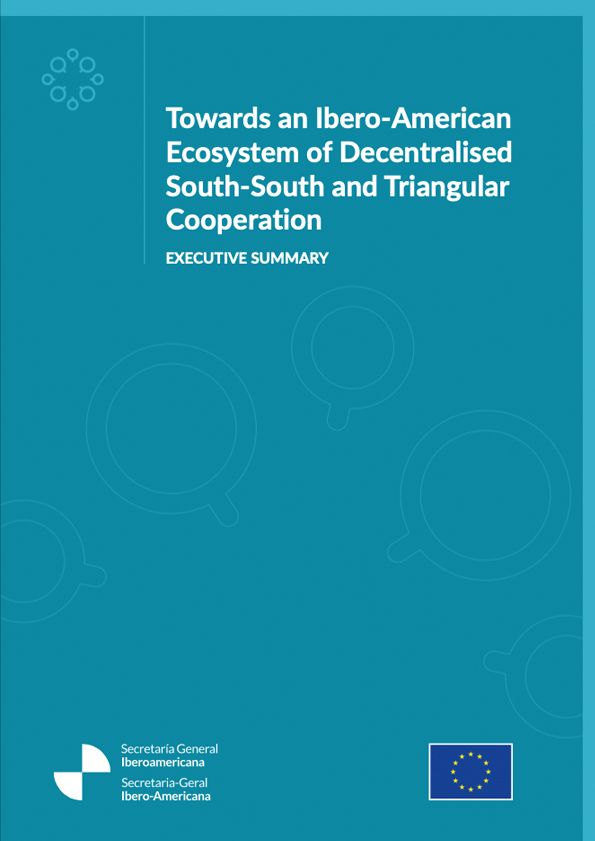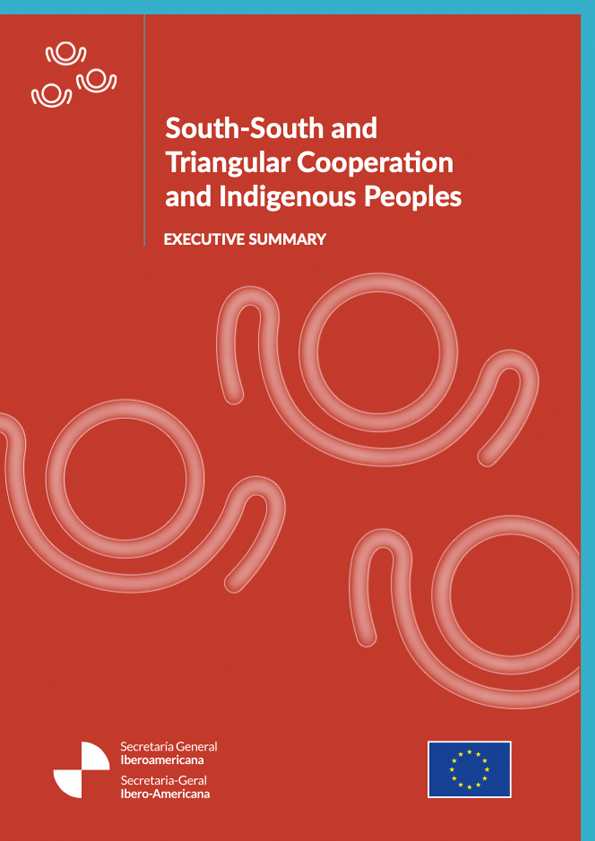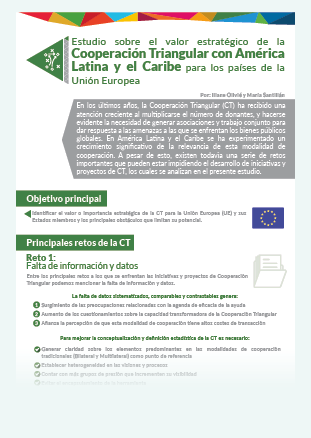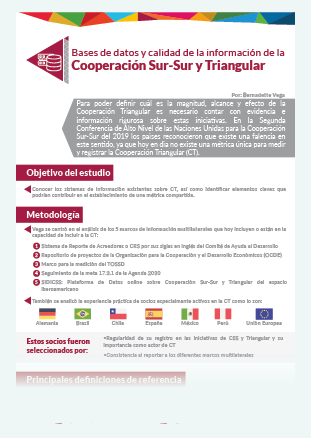The Innovative Triangular Cooperation for a New Development Agenda project, financed by the EU Regional Facility for Development in Transition, works on building an innovative triangular cooperation model between Ibero-America and the EU, in alignment with the 2030 Agenda for Sustainable Development.
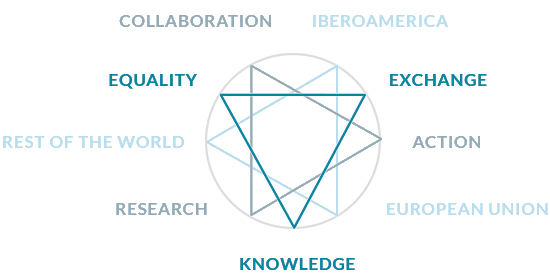
To this end, a collective construction strategy has been set in motion, based on research and action, as well as on technical and political dialogue. In the two years it has been underway, the project has worked on generating consensus and knowledge and on translating them into specific tools.
